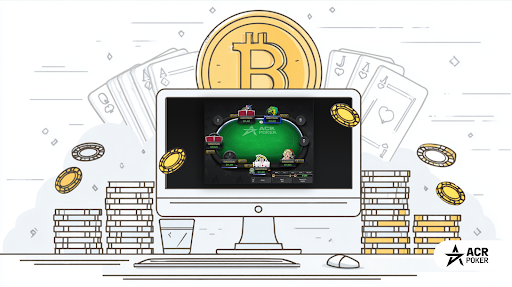The rise of anonymous Bitcoin casinos represents a significant evolution in both online gaming and fintech. With speed, privacy, and the promise of untraceable transactions, these platforms attract players from all walks of life. Yet, beneath the excitement lies a crucial psychological challenge: Are you calm enough to walk away from an anonymous Bitcoin casino anytime? Understanding this question touches on human psychology, financial risk, and the engineered addictiveness of digital betting environments.
The Rise of Anonymous Betting Platforms
Anonymous Bitcoin casinos differ sharply from traditional online gambling sites. Instead of detailed identity verification and regulated withdrawals, users can open accounts with little more than an email address—or even less. Transactions are powered by decentralized cryptocurrencies, often bypassing regional restrictions.
Key Drivers Behind Bitcoin Casino Popularity
- Privacy: Many users are drawn by the promise of anonymity and zero access to sensitive banking details.
- Speed: Crypto transactions often settle faster than credit card or bank transfers.
- Global Access: Users from jurisdictions where gambling is restricted can participate without oversight.
Real-world trends support this surge. Industry reports estimate that the volume of crypto casino transactions has experienced double-digit annual growth since 2020. Major brands like Stake and BC.Game have helped normalize crypto gaming within digital communities.
The Psychology of Compulsive Play
Stepping into an anonymous casino with a Bitcoin wallet isn’t the same as dropping into a brick-and-mortar venue. The decoupling of identity—and the abstraction of money into cryptocurrency—amplifies risk in subtle ways.
Why Is Walking Away So Difficult?
- Instant Access: No in-person supervision or ID checks.
- No Currency Anchor: Betting in BTC or ETH rather than dollars can distort value perception.
- Infinite Re-entry: Account bans, timeouts, and other “cool-off” mechanisms are often not enforced.
One study from the UK Gambling Commission highlights that problem gamblers are overrepresented in online settings with rapid-play options. The sense of digital “invisibility” may embolden riskier behavior.
“For many, the very feature of anonymity is a double-edged sword; what liberates can also enable unchecked escalation. In unregulated crypto casinos, behavioral boundaries can dissolve much faster,”
— Dr. Maya Harrington, Behavioral Psychologist and Gambling Harm Researcher
Self-Control Strategies in a Borderless Environment
In a world where anyone can gamble with a few taps and no formal oversight, exercising self-control isn’t just wise—it’s essential. This becomes especially critical when losses and wins register in units that lack strong emotional anchors.
Proven Methods to Maintain Calm and Control
1. Pre-set Betting Limits
Some platforms allow for customizable daily or session-based limits. However, truly anonymous casinos may not support these features, shifting responsibility entirely to the player.
2. Time Management Tools
Dedicated browser extensions and third-party software can restrict site access after certain hours or timeframes, providing an external brake on risky impulses.
3. Value Anchoring
Converting cryptocurrency values back into your local fiat currency before placing bets can help restore “real world” awareness and prevent emotional detachment.
4. Community Accountability
Joining online forums or peer support groups introduces an element of social control. Sharing betting patterns or intentions with others can mimic some responsible gambling structures found in regulated settings.
The Dark Side: Security and Regulation Gaps
Anonymous crypto casinos may embody privacy, but they largely operate outside established consumer protections. There are no chargebacks, minimal recourse for disputes, and platforms may simply disappear, taking balances with them. Numerous high-profile “rug pulls” and exit scams have left many users empty-handed.
Relying on Self-Discipline Alone Is Risky
A critical challenge is the lack of built-in safety mechanisms. Regulated platforms may enforce session timeouts, betting limits, and age checks, whereas anonymous casinos leave control squarely in the hands of each player.
Case in Point
In 2022, an anonymous casino abruptly vanished, deleting user accounts and withholding tens of millions in deposits. For affected gamblers, the absence of regulatory recourse made recovery impossible—a scenario repeated across several Bitcoin casino closures.
The Role of Calm Detachment in Safe Gambling
Detachment is the ability to maintain emotional distance from the excitement and disappointment of gambling wins and losses. Experts often argue that this calm is the only true defense when external controls are absent.
Assessing Your “Walk Away” Readiness
- Can you log off after a loss without chasing the outcome?
- Are you checking balances in terms of daily expenses or only in BTC?
- Do wins excite you out of proportion to their real-world value?
If answered honestly, these questions provide insight into whether gambling remains a recreational thrill, or has escalated into risky territory.
Finding the Right Balance: Red Flags and Green Lights
Not everyone will encounter the same level of risk in anonymous casinos, but understanding warning signs is vital.
Red Flags
- Hiding gambling activity from friends or family
- Borrowing crypto or fiat money to keep playing
- Frequent mood swings linked to gambling outcomes
Green Lights
- Setting and respecting pre-established limits
- Logging activities or keeping a gaming journal
- Regular self-checks and honest review of time and spending
Conclusion: The Calm Audit Before You Play
The question—Are you calm enough to walk away from an anonymous Bitcoin casino anytime?—is more than just rhetorical. In an environment built on both innovation and unpredictability, personal restraint becomes the single most important safeguard. While the technology underpinning anonymous Bitcoin casinos offers novel opportunities, the risks to psychological and financial well-being are real and, without external controls, entirely your own responsibility.
For those venturing into these digital frontiers, a simple audit of your own calm is not just advised—it’s essential. Set clear boundaries, stay conscious of your emotional triggers, and err on the side of caution. Virtual anonymity is not a substitute for self-awareness.
FAQs
How is gambling at an anonymous Bitcoin casino different from traditional online casinos?
Anonymous Bitcoin casinos usually require minimal personal information and allow users to deposit and withdraw with cryptocurrency, providing greater privacy but less consumer protection than regulated sites.
Are anonymous Bitcoin casinos legal everywhere?
Legality varies by jurisdiction. Many operate in regulatory grey areas or offshore, so players should check their local laws before participating.
What are the main risks of playing at anonymous crypto casinos?
Key risks include lack of legal recourse, limited responsible gambling tools, the potential for scams, and the psychological challenges related to fast, untraceable transactions.
Can I use responsible gambling features in anonymous Bitcoin casinos?
Many lack formal responsible gambling tools like betting limits or self-exclusion, so players largely rely on self-imposed controls and third-party solutions.
How can I protect myself when playing at these platforms?
Set clear spending and time limits, use value anchoring, and participate in trusted gambling communities. Always research a casino’s reputation before depositing any funds.
Is it possible to recover stolen or lost crypto from a gambling scam?
Recovery is extremely difficult—once lost, funds are often unretrievable due to the anonymous and decentralized nature of cryptocurrencies. Always proceed with caution and only risk what you can afford to lose.










Leave a comment